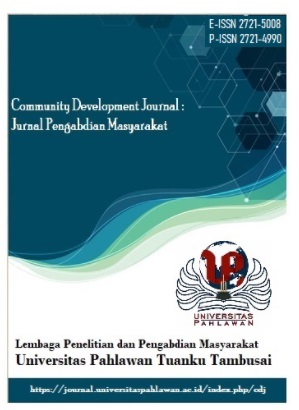SMART CITY IN SUSTAINABLE POLICY DEVELOPMENT AS A COMPETITIVENESS STRATEGY: LITERATURE REVIEW
DOI:
https://doi.org/10.31004/jrpp.v8i1.43767Keywords:
Smart City, Digitalization, Economy, Policy, SustainabilityAbstract
Smart cities in sustainable development policies are a phenomenon of rapid urbanization development and changing the urban development paradigm. This concept utilizes high technology and data analysis to improve the population's quality of life, increase the efficiency of infrastructure and services, and stimulate sustainable economic growth. Smart cities aim to create a connected and intelligent urban environment by integrating various sectors. This research uses a structured literature review method by utilizing sources such as Scopus and Google Scholar and formulates research questions related to smart cities. The questions include defining an intelligent city, benefits, implementation challenges, applications, and quantitative analysis. In addition, this research aims to analyze the implementation of smart city solutions and propose strategies to overcome emerging challenges. Data-driven solutions in smart cities can change the urban landscape by providing personalized services and addressing the need for collaboration between the private, public, and government sectors. This research indicates that using technology and innovation in policy development to create sustainable economic growth in cities involves efforts to increase the city's economy's efficiency, productivity, and competitiveness. The complexity of urban development, the application of advanced technologies, and data-driven solutions in intelligent cities promise significant progress in sustainable urban development.References
Amah, T. E., Kamat, M., Abu Bakar, K., Moreira, W., Oliveira Jr., A., & Batista, M. A. (2020). Preparing opportunistic networks for smart cities: Collecting sensed data with minimal knowledge. Journal of Parallel and Distributed Computing, 135, 21–55. https://doi.org/10.1016/j.jpdc.2019.09.005
Anthony Jnr, B., Abbas Petersen, S., Ahlers, D., & Krogstie, J. (2020). Big data driven multi-tier architecture for electric mobility as a service in smart cities: A design science approach. International Journal of Energy Sector Management, 14(5), 1023–1047. https://doi.org/10.1108/IJESM-08-2019-0001
Ardito, L., Ferraris, A., Messeni Petruzzelli, A., Bresciani, S., & Del Giudice, M. (2019). The role of universities in the knowledge management of smart city projects. Technological Forecasting and Social Change, 142, 312–321. https://doi.org/10.1016/j.techfore.2018.07.030
Bartelt, V. L., Urbaczewski, A., Mueller, A. G., & Sarker, S. (2020). Enabling collaboration and innovation in Denver’s smart city through a living lab: a social capital perspective. European Journal of Information Systems, 29(4), 369–387. https://doi.org/10.1080/0960085X.2020.1762127
Campbell-Johnston, K., Cate, J. T., Elfering-Petrovic, M., & Gupta, J. (2019). City level circular transitions: Barriers and limits in Amsterdam, Utrecht and The Hague. Journal of Cleaner Production, 235, 1232–1239. https://doi.org/10.1016/j.jclepro.2019.06.106
Di Vaio, A., Palladino, R., Pezzi, A., & Kalisz, D. E. (2021). The role of digital innovation in knowledge management systems: A systematic literature review. Journal of Business Research, 123, 220–231. https://doi.org/10.1016/j.jbusres.2020.09.042
Elmustapha, H., & Hoppe, T. (2020). Challenges and opportunities of business models in sustainable transitions: Evidence from solar energy niche development in Lebanon. Energies, 13(3). https://doi.org/10.3390/en13030670
Ilgen, S., Sengers, F., & Wardekker, A. (2019). City-to-city learning for urban resilience: The case of water squares in Rotterdam and Mexico City. Water (Switzerland), 11(5). https://doi.org/10.3390/w11050983
Lestari, S. D., Leon, F. M., Widyastuti, S., Brabo, N. A., & Putra, A. H. P. K. (2020). Antecedents and consequences of innovation and business strategy on performance and competitive advantage of SMEs. Journal of Asian Finance, Economics and Business, 7(6), 365–378. https://doi.org/10.13106/JAFEB.2020.VOL7.NO6.365
Minoja, M., & Romano, G. (2021). Managing intellectual capital for sustainability: Evidence from a Re-municipalized, publicly owned waste management firm. Journal of Cleaner Production, 279. https://doi.org/10.1016/j.jclepro.2020.123213
Nguyen, H. L., Vu, D. T., & Jung, J. J. (2020). Knowledge graph fusion for smart systems: A Survey. Information Fusion, 61, 56–70. https://doi.org/10.1016/j.inffus.2020.03.014
Othman, B., Md. Shaarani, S., & Bahron, A. (2017). The influence of knowledge, attitude and sensitivity to government policies in halal certification process on organizational performance. Journal of Islamic Marketing, 8(3), 393–408. https://doi.org/10.1108/JIMA-09-2015-0067
Reis, J., & Melão, N. (2023). Digital transformation: A meta-review and guidelines for future research. Heliyon, 9(1). https://doi.org/10.1016/j.heliyon.2023.e12834
Rialti, R., Marzi, G., Ciappei, C., & Busso, D. (2019). Big data and dynamic capabilities: a bibliometric analysis and systematic literature review. Management Decision, 57(8), 2052–2068. https://doi.org/10.1108/MD-07-2018-0821
Sepasgozar, S. M. E., Hawken, S., Sargolzaei, S., & Foroozanfa, M. (2019). Implementing citizen centric technology in developing smart cities: A model for predicting the acceptance of urban technologies. Technological Forecasting and Social Change, 142, 105–116. https://doi.org/10.1016/j.techfore.2018.09.012
Wataya, E., & Shaw, R. (2019). Measuring the value and the role of soft assets in smart city development. Cities, 94, 106–115. https://doi.org/10.1016/j.cities.2019.04.019
Xu, X. L., Chen, H. H., & Zhang, R. R. (2020). The impact of intellectual capital efficiency on corporate sustainable growth-evidence from smart agriculture in China. Agriculture (Switzerland), 10(6), 1–15. https://doi.org/10.3390/agriculture10060199
Zandiatashbar, A., Hamidi, S., & Foster, N. (2019). High-tech business location, transportation accessibility, and implications for sustainability: Evaluating the differences between high-tech specializations using empirical evidence from U.S. booming regions. Sustainable Cities and Society, 50. https://doi.org/10.1016/j.scs.2019.101648
Downloads
Published
How to Cite
Issue
Section
License
Copyright (c) 2025 Annisa Mardatillah

This work is licensed under a Creative Commons Attribution-ShareAlike 4.0 International License.






